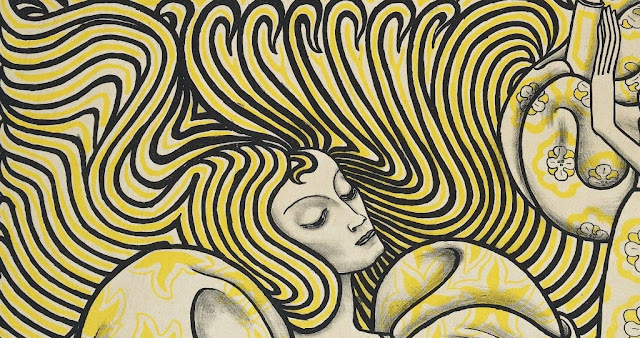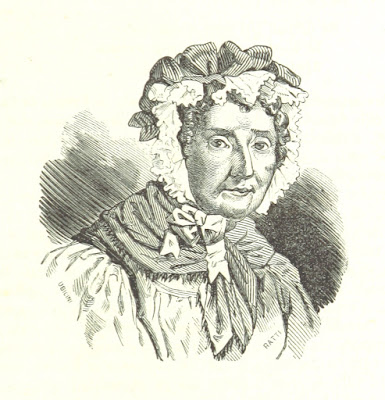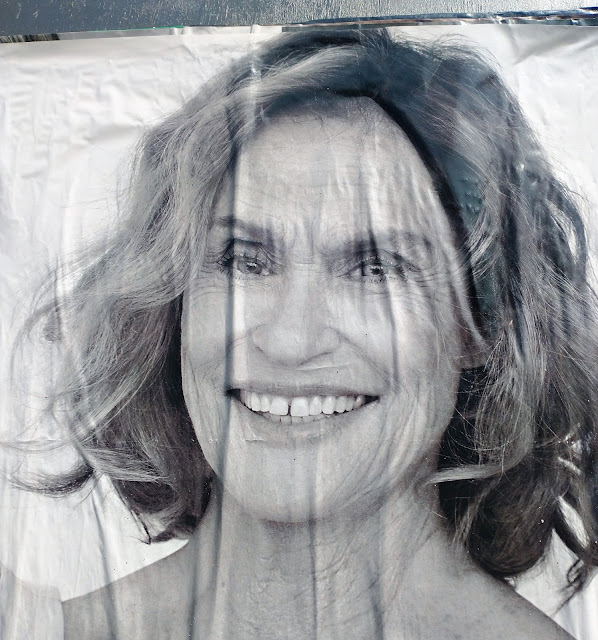Well, it's been about 18 months, eh?
Surprisingly, my aging marches on despite the lack of posts.
I intend to get back in the game here, but you know how that goes sometimes.
A travel journal from the Land of Age.
Well, it's been about 18 months, eh?
Surprisingly, my aging marches on despite the lack of posts.
I intend to get back in the game here, but you know how that goes sometimes.
 |
| Benson Sculpture Garden, Colorado. May 2016. Credit: Mzuriana. |
Jeez Louise. I watched the movie, Still Alice, over the weekend. A new kind of horror film. About a middle-aged woman, Alice, victimized by early-onset Alzheimer's.
Shit.
My takeaways:
A most stunning act of bravery in the movie occurred when Alice, while she was still Alice, created a video for her future self. Although the movie is almost a decade old, for anyone who hasn't yet seen it, I won't share what happened afterward.
My #2 takeaway is something I will reflect on in the coming days. It is potentially actionable information.
 |
| Coffee poster. Arizona. February 2020. |
My original draft for this post began December 2021. In re-reading the draft this week, at the end of March 2023, I bored even myself by reading the minutiae of my experiments, so I edited a bunch of that out.
And spoiler alert: Notwithstanding all that good work back on the cusp of 2021/2022, I drifted back to drinking two pots of fully-loaded coffee each morning. .... Now having revisited this draft, I'll resume my mixture of caffed and decaffed ingredients. That was a good practice.
So, on to the 2021/2022 experiment:
As part of troubleshooting some concerning health symptoms, I decided on December 7 this past year [2021] to run an experiment. Quit coffee for awhile. See what happens.
My coffee origin story
I never drank a drop of coffee until I was in my early 40s. Loved the smell; despised the taste.
I was a Diet Coke or Diet Pepsi girl. Drank it in the morning, all day, and at night. Loved that biting carbonation and the flavor. Maybe the caramel coloring added something ephemeral to the pleasure, as white sodas did little for me.
But one day, everything changed in a moment.
It was at a day-long, offsite, work-related meeting at a hotel.
Breakfasty break things set out by the hotel. Long, white-clothed tables. A big, shiny silverish coffee urn. Chubby ecru coffee mugs stacked on a tray.
A switch turned on: I had a desire for a cup of coffee. I poured myself one. I drank of it. I loved it immediately.
From then on, I was a coffee drinker.
Black, no sweetener.
I thought I'd experienced caffeine in my diet sodas, but that was nothing in comparison to the wallop of coffee caffeine.
For awhile I was a coffee snob, but that was just a phase. Thank goodness.
In the beginning of my coffee-drinking career, I ordered espresso on occasion when in a coffeehouse, but I found the quality so unreliable, notwithstanding the baristas' pride in their skills, that I defaulted to the brewed coffee on tap. Besides, due to my financially-prudent Swiss heritage, I valued the higher number-of-swallows bang for my buck with a cup of brew than a demitasse of espresso.
My long-time coffee drinks of choice:
Caffeinism caught up with me?
Fast forward (backward?) to December 7 this past year [2021]. I quit coffee.
Prior to the day I quit, my usual consumption was 50 ounces per morning: two pots of my five-cup coffee maker. My "recipe":
My withdrawal experience:
I thought I would miss the ritual of a cup of coffee. I did, a little, but not much.
A possible coincidence: Several mornings before my coffee stoppage, I had been experiencing severe anxiety each morning, which for me, centers in my belly. The first three mornings following my coffee abstention, I continued to have this distressing anxiety. Then it was gone.
On December 22 [2021], I began to drink coffee again, but ...
Between December 22 and December 30, I tried various recipes that mixed caffed and decaffed coffee.
My overall objectives were to:
The winning recipe:
 |
| Successful Aging by Daniel Levitin. Image source: Goodreads |
A friend recommended Successful Aging, by Daniel J. Levitin, to me. Dr. Levitin is a neuroscientist. A neuropsychologist recommended the book to my friend, and she found the content illuminating.
I've now finished the book, and here's my overall take:
If I had to score the book on a scale of 0 to 5, with 5 being exemplary, I'd give it a 3.75. [Edit:... I'd give it a 4.5 ..... I upped my preliminary assessment after I revisited all of the highlighted text I'd marked while reading the book the first time. Also, the author has documented his intel to a faretheewell in his Notes section at the back of the book.]
 |
| "Salad Oil Style" by Jan Toorop, 1894. Source: Public Domain Review. |
Hair: Supply shortage
Although some of us womenfolk are blessed with luxuriously thick hair on unto death, others of us struggle with thinning hair that looks like a clearing in a forest of skinny aspens.
What to do?
At the moment, my hair is just long enough for option #6. I'm leaning hard toward a shearing. A pixie. Or go all Sinead O'Connor?
 |
| Woman with cloth cap. Source: British Library public domain images. |
 |
| Woman with wig. Source: British Library public domain images |
Hair: Illegal border crossings
To paraphrase something Samantha once said about an unwanted hair: "You pluck it out and five more come to its funeral."
I'm referring to facial hair, whereas Samantha referred to a different corporeal neighborhood.
I visited New York City last week.
I saw this giant image of Lauren Hutton.
She's 78.
Go figure.
I was immediately taken with the unabashed lineage of her face.
Oh sure, I'm confident there's been some post-production touching up here and there, but there are lines aplenty. And, yes, she's got a good infrastructure to support the lay of her skin.
But still.
I bet nobody dares call her young lady.
A good role model for me.
 |
| Lauren Hutton at 78, on a banner in New York City. September 2022. |
 |
| Light through the window. Playa del Carmen, Quintana Roo, Mexico. November 2010. Credit: Mzuriana. |
Every morning, I open my window blinds and receive the light into my space.
Every morning, in the physicality of that action, I remember my mother.
Every morning, my mother also opened her blinds, or shutters, or curtains, or drapes - whatever the window treatment was in the house she occupied at the time.
She also told me how important it was to clean off the kitchen counters. Even if there are dishes in the sink, she said, a clean counter makes the whole kitchen look pretty OK, and it makes her feel good, too, she said.
She also told me how important it was to apply lipstick in the morning (and in her years of youngish matronhood, how important it was to refresh that lipstick before my father returned home from work).
So what do these prosaic actions have to do with aging?
To each her own on whether or not to apply cosmetics when one is traveling in the Land of Age, but here are some thoughts about its power, gleaned from the Women's Health article, Why Putting On Lipstick Makes You Feel So Awesome:
"... lipstick provides a reliable tonic in trying times. ... it often serves as a symbol (however small) of health and vibrancy. 'Lipstick helps restore a normal sense of self that a patient can lose during incredibly difficult cancer treatments and help them feel like themselves,' says Bobbie Rimel, M.D., a gynecologist and oncologist...."
"[Poppy King] recalls ... 'Lipstick immediately made me feel different on the inside ... like I was capable of more with it on than I was without it.'"
"As Audrey Hepburn so succinctly put it, 'On a bad day, there's always lipstick.'"